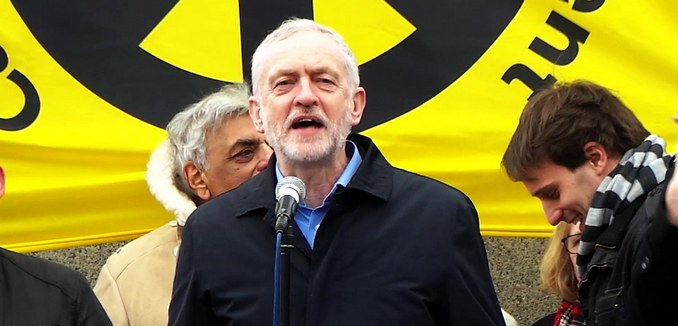The United Kingdom’s Labour Party might be unable to hold its annual conference this year because G4S, the security firm Labour asked to handle the event months after boycotting it over its ties to Israel, has rebuffed the party’s last minute request, The Telegraph reported on Thursday.
G4S, a multinational British-Danish firm that secured Labour’s annual conference for over 20 years, was dropped by the party two months ago on account of the company’s business dealings in Israel. Labour was subsequently unable to find a replacement to secure the gathering next month, however, leading to the possibility that it may have to be cancelled.
G4S told The Telegraph that the short notice and abuse Labour Party members directed at its employees at previous events, which saw staff being spat on and cursed at, prevented it from accepting the contract.
“Safety for delegates and our staff is our priority and at this late stage and with our teams committed elsewhere, we are not in a position to step in and provide security for the conference,” the company said in a statement.
Three other firms that were approached also refused to secure Labour’s flagship event. Without a provider, the UK’s Home Office may be forced to shut down the conference, which would be a blow to the party. The conference is typically the time when members consider new initiatives and seek support for policies.
Labour has taken an anti-Israel stance under its current leader, Jeremy Corbyn, who in 2009 called the terrorist groups Hamas and Hezbollah “friends,” and their designation as terrorist entities “a big, big historical mistake,” before expressing “regret” for using the term “friends” last month. Earlier this year, after multiple party members openly expressed anti-Semitic sentiments under Corbyn’s leadership, Labour commissioned a report on anti-Semitism in its ranks.
However, the probe ultimately only helped Labour whitewash its anti-Semitism problem, as Jamie Palmer wrote in the August 2016 issue of The Tower Magazine.
The Chakrabarti Report was a missed opportunity, the importance of which extends far beyond the parlous state of the Labour Party or the wider British Left. Across Europe, Islamist assassins and vandals are targeting Jewish schools, businesses, museums, synagogues, cemeteries, and kosher food establishments. It has become a cliché that a wave of anti-Semitism is washing over Europe.
Some on the Left have taken notice. Four days after the murder of four Jewish hostages during the siege of the Hyper Cacher kosher supermarket in Paris, France’s Socialist Prime Minister, Manuel Valls, described “the intolerable rise in acts of anti-Semitism in France” as a “symptom of a crisis of democracy [and] the French Republic.” But such urgent and necessary diagnoses from the political Left have been notable for their scarcity.
For the most part, the Left has remained stubbornly indifferent, retreating into denial and moral cowardice or, worse, advancing boldly into outright complicity. In the name of anti-racism, anxieties about Muslim immigration and intolerance are routinely denounced as xenophobic bigotry. In the name of Palestinian solidarity, responsibility for lethal anti-Semitism is routinely laid at the feet of an Israeli government held to be insufficiently dedicated to the pursuit of peace. And in the radical Leftist circles in which Jeremy Corbyn moves, Islamists are routinely embraced by politicians and human rights activists who insist on mistaking a politics of hatred and supremacism for a principled opposition to Western Imperialism and Israeli policy in disputed territory.
The Chakrabarti Report is a paradigmatic example of this political and moral failure. As I have argued in a previous essay for The Tower, hostility to Israel and Zionism has roots in Left-wing ideologies and axioms that stretch back decades, and it is this history that ought to have been the focus of Chakrabarti’s inquiry. But its evasions and obfuscations are a product of those ideologies and axioms, a symptom of the very problem it purports to explore. It was, in short, an inquiry that was always intended to go precisely nowhere.
[Photo: Garry Knight / Flickr ]




